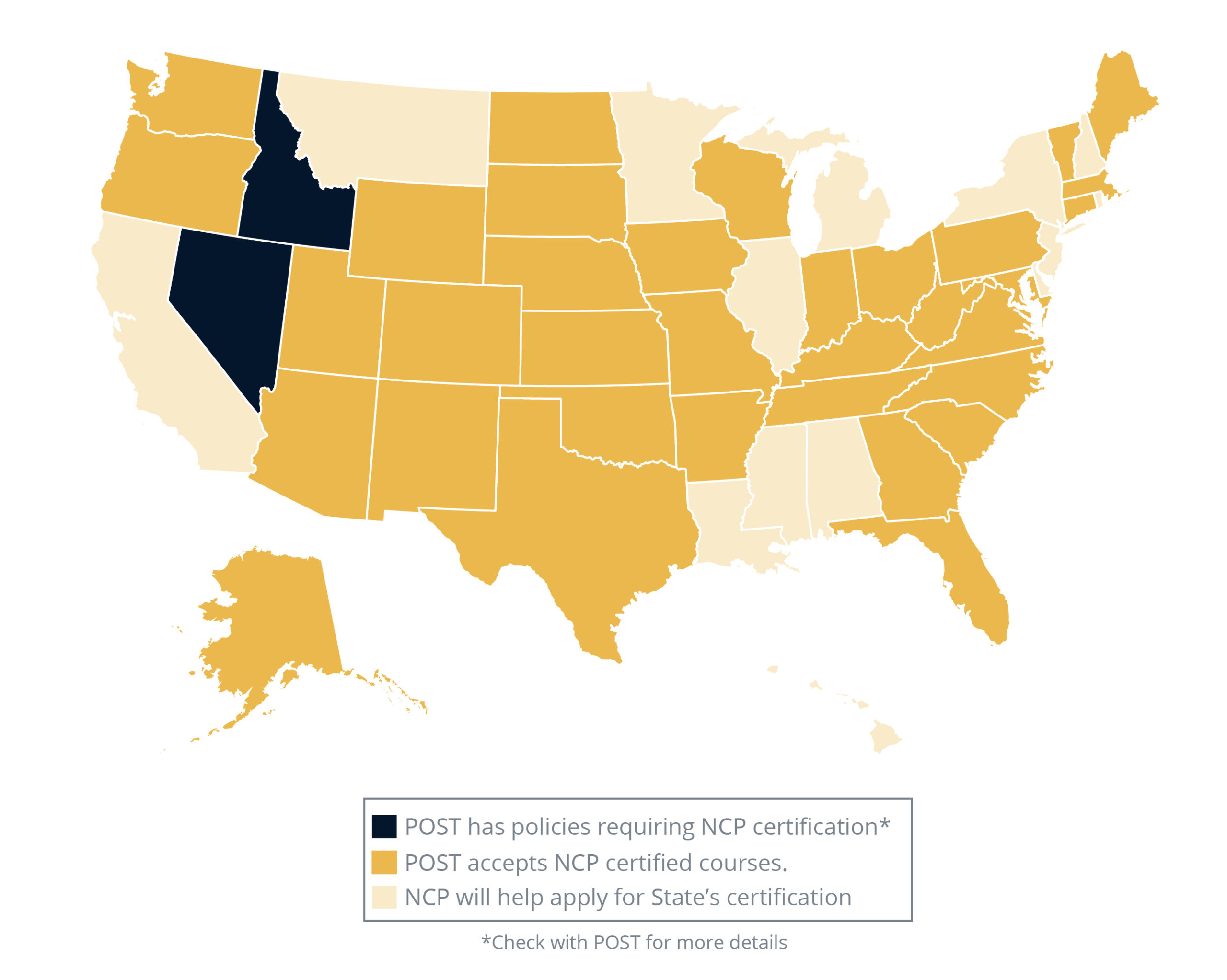0
The Force Encounters Course introduces the psychological and physiological factors that affect threat assessment, sensory perception, decision, performance, and memory and applies these evidence-based concepts to high-stress and life-threatening encounters in a law enforcement context.
The curriculum for this program is based on Force Science’s peer reviewed research that uses precise time-and-motion measurements to document environmental, physiological, and psychological dynamics during high-threat events. Real-world examples are used to facilitate discussion and demonstrate the ways physiological and technological factors affect the answers to critical use-of-force questions.
The course materials are delivered in class by lectures, group discussions, video presentations, and case studies.
The course will use research and input from a group of experts to teach the following concepts and more:
The course materials are delivered through a series of learning sessions, including lectures, group discussions, video presentations, and case studies. An expert instructor will help learners identify and understand physical and psychological phenomena associated with human behavior and demonstrate how these can impact performance under stress. Some of the main learning topics include:
A participant’s ability to earn the certificate of completion for this course is dependent on their ability to perform satisfactorily the following:
At the end of the course, learners will understand the critical factors involved in use-of-force decisions and their performance in such situations. Participants will be able to incorporate the psychological and physiological concepts they learn into training programs that can enhance departmental and individual officer performance, encourage accountability and inform community oversight. The concepts taught in the course support commitment to procedurally just investigations, employing realistic, thorough, and evidence-based analysis.
The instructional team for the Force Encounters Course is comprised of both on-staff and external partnering experts who have been extensively trained on the research and materials provided throughout this course.
The Force Encounters: Investigation Fundamentals, Decision-Making, and Human Performance course is certified for 16 hours of Continued Law Enforcement Education (CLEE) credits through the International Association of Directors of Law Enforcement Standards and Training (IADLEST) for their National Certification Program (NCP) review for POST accreditation.
 IADLEST NCP accreditation is currently accepted in 36 states. The presence of NCP endorsement on a course demonstrates that the materials have been approved by an approval body specifically aiming to raise the quality standards of ongoing law enforcement officer training throughout the country. Therefore, departmental leaders can be confident in arranging such classes for their officers.
IADLEST NCP accreditation is currently accepted in 36 states. The presence of NCP endorsement on a course demonstrates that the materials have been approved by an approval body specifically aiming to raise the quality standards of ongoing law enforcement officer training throughout the country. Therefore, departmental leaders can be confident in arranging such classes for their officers.
Tuition Fee
This course is currently available in person only. An online option will be made available later this year!
In-Person Learning